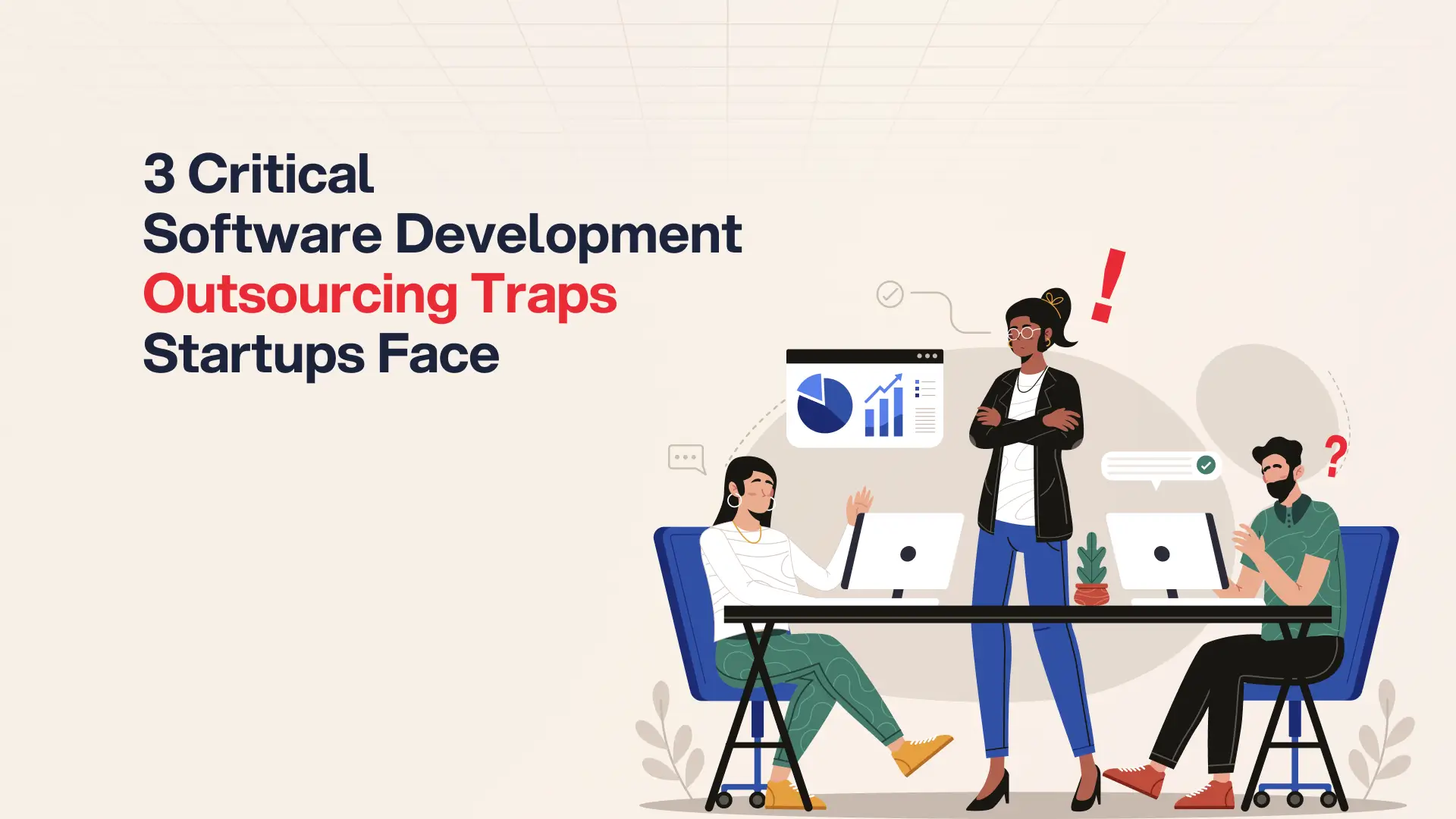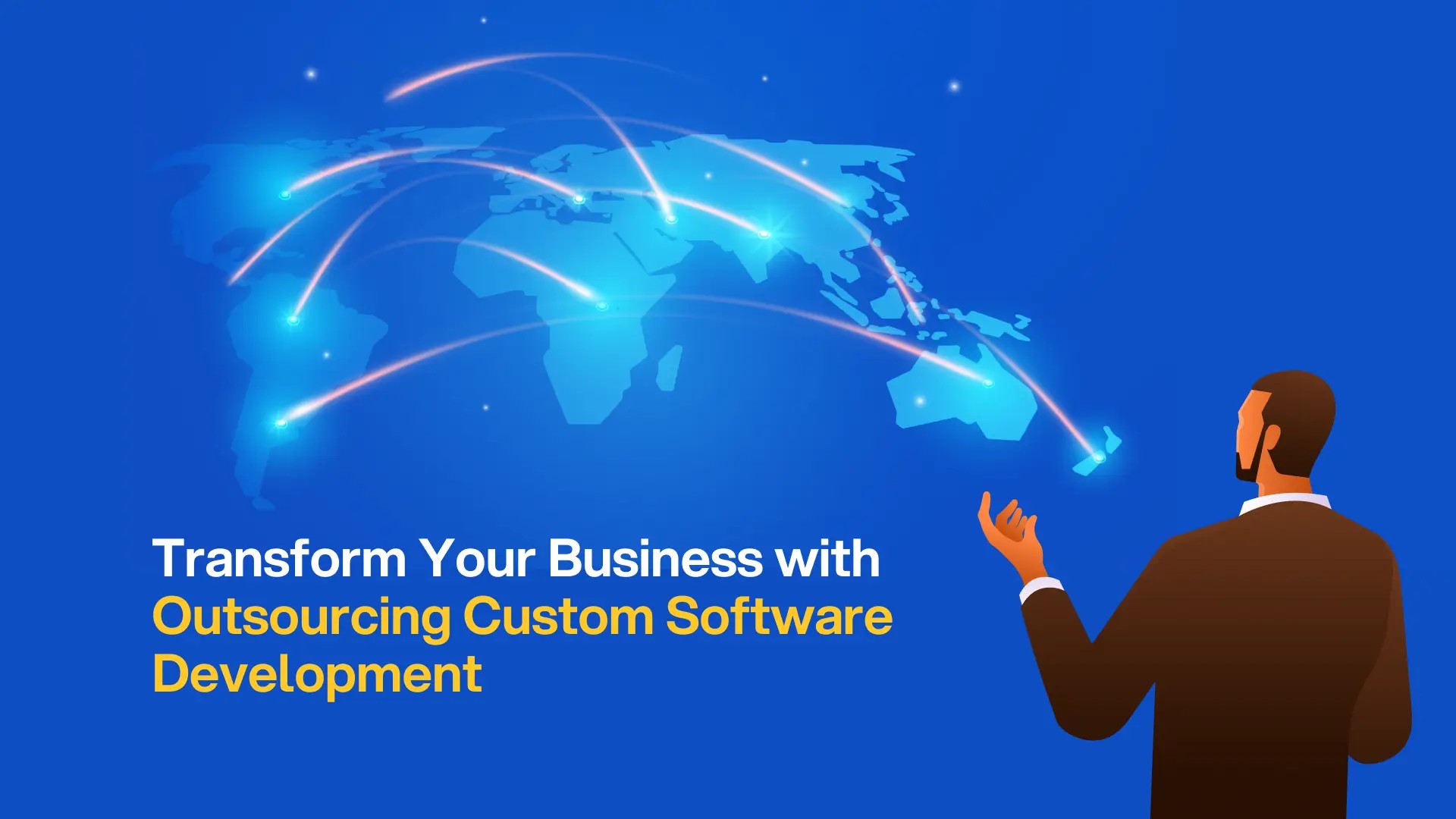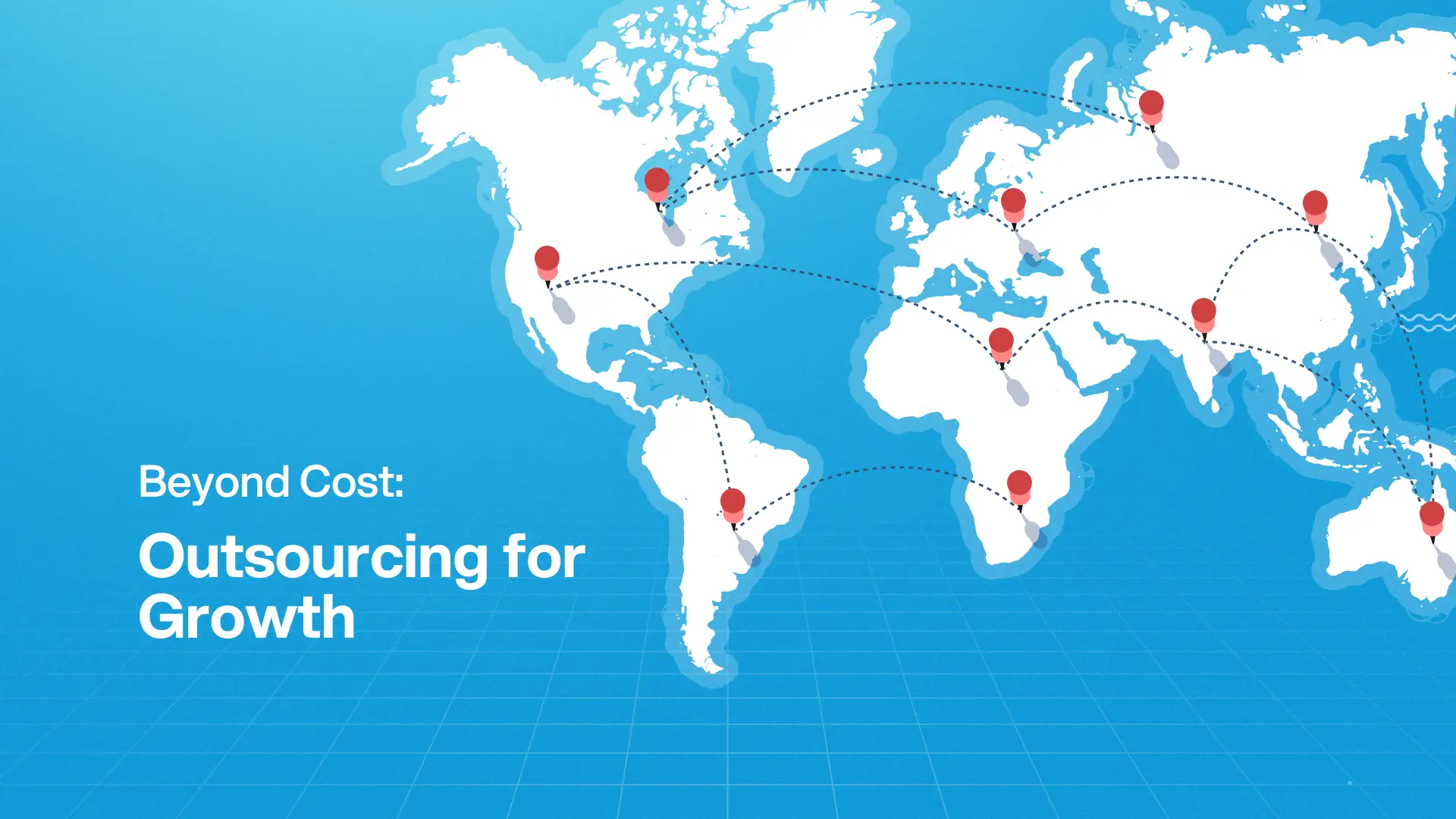Post Activity
 1280
1280
Table of Content
Share This Post
Table of Content
As companies look for more flexible, cost-effective, and digital ways to grow, IT outsourcing in Indonesia is quickly becoming a strong option. Traditional markets like India and Eastern Europe still lead, but more businesses are turning to Southeast Asia’s largest economy for affordable and scalable software development.
Outsourcing software development in Indonesia is not limited to saving money. It is now a smart strategy for companies seeking to tap into a large talent pool, speed up innovation, and mitigate outsourcing risks. Here is why Indonesia is worth considering.
Strategic Drivers for Outsourcing to Indonesia
Indonesia offers a strong mix of scale, affordability, and digital potential. In 2025, its IT services market is valued at $6.32 billion and is expected to grow to $15.58 billion by 2032. The wider ICT market is estimated at $48.91 billion this year. This expansion reflects deep demand for enterprise software solutions, cloud infrastructure, and mobile-first development.
The digital economy’s contribution to GDP is projected to rise from 5.5% in 2018 to nearly 18% by 2030. This indicates that Indonesia is evolving into a technology powerhouse, especially across manufacturing, transportation, and commerce sectors.
The Economy of Indonesia at a Glance
| Gross Domestic Product | ||
| Annual GDP | USD 1.4 Trillion (2023) | |
| GDP Per Capita | USD 4,876 (2023) | |
| Income Category | Upper Middle Income (2025) | |
| People | ||
| Population | 285.2 Million (2025) | |
| Literacy Rate | 96% (2020) | |
| EF English Proficiency Index | Low Proficiency (2024) | |
| IT Sector | ||
| IT Services Market Size | USD 6.14 Billion (2025) | |
| IT Outsourcing Market Size | USD 2.24 Billion (2025) | |
| Registered Software Companies | No reliable data found | |
| Business Environment | ||
| Ease of Doing Business | Score: 70/100, Rank: 73/190 (2020) | |
| Political Stability Indicator | Percentile Rank: 29 (2023) | |
| Corruption Perceptions Index | Score: 34/100, Rank: 115/180 (2023) | |
Indonesia has over 3.1 million software developers, making it the third-largest developer community in Asia-Pacific. It also produces over 300,000 STEM graduates each year, ranking fifth in the world. In 2023, GitHub data showed a 213% jump in generative AI projects, proving the country’s growing innovation culture.
Macroeconomic fundamentals support this momentum. The country enjoys a stable inflation rate of 1.7% and a manageable currency rate (16,393 IDR/USD). Politically, Indonesia holds a moderate stability score of 28.91. While challenges exist in infrastructure (digital index score of 0.12) and AI readiness (0.52), public-private initiatives like “Digital Nusantara” and the national AI roadmap are bridging these gaps.
Explore Your Next Development Partner
Explore a curated list of trusted software development firms based in Indonesia.
Strategic Advantage
Apart from the obvious benefits of cost-effectiveness, scalability, and access to skilled tech talent, Indonesia offers several deeper strategic advantages that make it an increasingly attractive choice for outsourcing software development.
Untapped Capacity and Lower Overhead
- Indonesia is less saturated than traditional outsourcing markets.
- Companies can scale without bidding wars for top talent.
- Cost advantages extend beyond salaries to infrastructure, office space, and day-to-day operations.
Cultural Fit for Long-Term Partnerships
- Indonesia scores high on power distance (78) and low on individualism (5).
- Teams are comfortable with structured environments and clear leadership.
- These traits support strong alignment in long-term outsourcing relationships.
Strong Regional Proximity
- Located near key APAC economies like Singapore and Australia.
- Nearshore time zone alignment improves collaboration and speed.
- Ideal for companies looking for regional synergy and quicker feedback loops.
Workforce Adaptability and Innovation Focused
- Indonesia’s developer community is both large and fast-moving.
- In 2023, generative AI projects grew by 213% on GitHub.
- Indonesian developers are eager to adopt new tech, making them great for digital transformation projects.
A Rising Hub for Tech-Driven Solutions
- Government-backed programs like Digital Nusantara are boosting digital infrastructure.
- Investments in cloud, cybersecurity, and AI are accelerating modernization.
- Strong collaboration between the public and private sectors is making Indonesia a serious tech hub.
Affordability, regional synergy, and innovation momentum give Indonesia a unique strategic edge in the global IT outsourcing ecosystem.
Government and Private Sector Support
Strategic government initiatives like Making Indonesia 4.0 and the 2021–2024 Digital Roadmap are creating a foundation for long-term digital transformation. These efforts are supported by national investments in AI development, data center expansion, and digital public infrastructure.
Key public-private programs include:
Digital Nusantara: Builds integrated national systems for identity, health, and civic data.
Reskilling Initiatives: Includes Digital Talent Scholarship, coding bootcamps, and global tech partnerships.
Tech Hubs: Global players like Google, AWS, Microsoft, and Apple have established R&D centers or developer academies in Indonesia, validating the country’s growing role in the global technology supply chain.
Real-World Success: Case Studies
Traveloka
Indonesia’s leading travel-tech company scaled its mobile platform using hybrid development teams across Jakarta and Bandung. With outsourced software developers integrated into the product lifecycle, the firm reduced time-to-market while keeping headcount lean.
Gojek
What began as a ride-hailing app evolved into a multi-service super app. Gojek outsourced parts of its product engineering during its early growth phase, enabling rapid MVP launches in payments, logistics, and food delivery.
Ruangguru
This edtech unicorn leveraged software development outsourcing in Indonesia to scale its infrastructure and improve its mobile learning experience. Outsourcing allowed the internal team to focus on content strategy and pedagogy, while external partners handled backend systems and app performance.
Ready to Build Your Team?
Let’s create together, innovate together, and achieve excellence together. Your vision, our team – the perfect match awaits.
Limiting Factors and Mitigation Strategies
The challenges in Indonesia are navigable with structured planning and vendor discipline.
English Proficiency and Communication
- Indonesia ranks 80th globally in English proficiency.
- Communication gaps can affect agile workflows and project visibility.
Mitigation: Choose vendors with bilingual project managers, conduct language assessments, and use tools like Google Meet and Slack to maintain clear communication.
Delivery Consistency and Quality Standards
- Market maturity varies significantly across vendors.
- Some firms may lack structured QA or agile implementation.
Mitigation: Vet vendors for ISO 27001, active GitHub contributions, and case studies. Use SLAs to enforce checkpoints and delivery standards.
Data Privacy and Legal Environment
- Indonesia has data protection laws, but it is not GDPR-compliant.
- Recent U.S. data framework agreements mark progress, but enforcement is evolving.
Mitigation: Work with legal experts on ASEAN-aligned contracts. Use NDAs, IP clauses, and secure cloud storage protocols.
Time Zone Compatibility
- Indonesia operates on GMT+7, 11–15 hours ahead of North America.
- This limits real-time collaboration with U.S.-based teams.
Mitigation: Schedule sprint planning during overlap hours, use hybrid team models, and adopt asynchronous collaboration tools like Loom or Notion.
Senior Talent Scarcity
- The tech talent pool is large, but senior engineers are in short supply.
- This can impact architecture-level decisions and mentorship.
Mitigation: Prioritize vendors that invest in upskilling and leadership development.
With proactive planning and vendor due diligence, these hurdles can be transformed into manageable risks, especially when compared to rising labor costs and talent gaps in more mature outsourcing markets.
Outsourcing Models in Indonesia
Indonesia supports a range of outsourcing models to suit different business needs, from early-stage MVPs to enterprise-scale systems. Here’s a look at the most common approaches:
Dedicated Development Teams
Ideal for long-term projects that require ongoing collaboration.
Clients retain control over team composition and workflows.
Best suited for companies building complex platforms or scaling internal tech capacity.
Staff Augmentation
Allows you to hire individual developers or QA engineers to fill specific skill gaps.
Offers flexibility in ramping up or down based on project demands.
Commonly used by companies needing extra support without the overhead of full hiring.
Project-Based Outsourcing
A turnkey model where the scope, timeline, and deliverables are predefined.
Vendors take full ownership of delivery, ideal for companies with limited in-house technical oversight.
Works well for standalone software solutions, mobile apps, or feature upgrades.
Managed Services
Vendors provide end-to-end support for maintenance, cloud management, DevOps, or cybersecurity.
Often includes 24/7 support, SLAs, and proactive issue resolution.
Favored by companies looking to focus on their core business while outsourcing IT operations.
Hybrid Models
Combines multiple models, such as a dedicated team for core development and project-based teams for feature-specific tasks.
Offers maximum flexibility and cost control.
Each of these models can be tailored based on project complexity, budget, and internal capabilities. Indonesian vendors often offer multilingual project managers and adopt tools like Jira, Trello, and GitHub to enable seamless cross-border collaboration.
Vendor Selection Checklist
Select vendors with:
- Industry-specific expertise (e.g., healthcare, fintech);
- Proven global delivery and international track records;
- Agile processes and robust IP security protocols;
- Scalability to handle growing project demands over time;
- Adequate team size to ensure resource depth;
- Positive client feedback and case studies demonstrating impact;
- Multi-time-zone support for seamless distributed team coordination;
- Transparent pricing models with clear cost breakdowns.
Final Takeaway
For companies dealing with talent shortages, rising development costs, and the need for around-the-clock digital delivery, IT outsourcing in Indonesia is more than just a passing trend. It is a smart and sustainable strategy. With a large pool of skilled professionals, stable economic conditions, and growing digital infrastructure, Indonesia offers strong value for the cost.
Success depends on careful vendor selection and consistent process control. The benefits, including cost savings, scalable teams, and operational strength, are significant. For business leaders exploring new outsourcing options, Indonesia is well worth considering.






